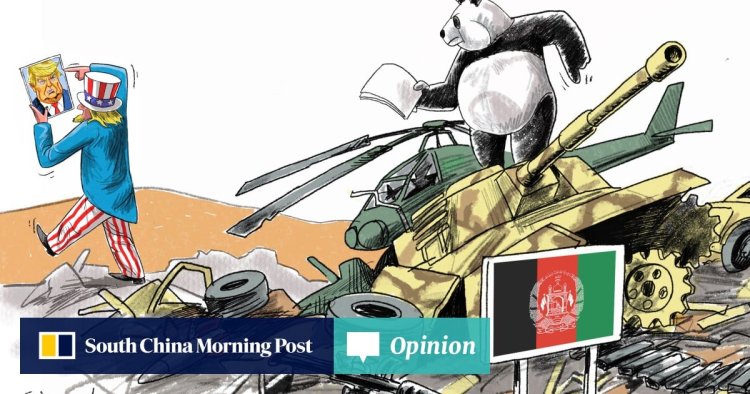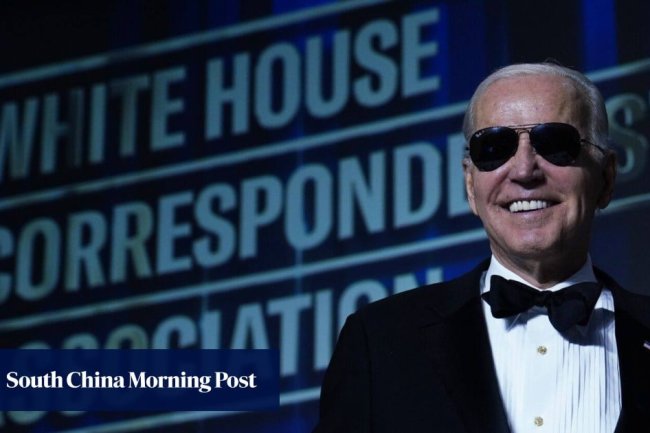While the US plays the blame game, China takes the higher road on Afghanistan
2023.04.17 01:00Within days of each other, China and the US have released documents on the situation in Afghanistan, with Beijing blaming Washington for the humanitarian disaster, and Washington blaming the previous Trump administration for the chaotic exit of US troops.China’s 11-point document, which also calls for international support of Afghanistan’s rebuilding efforts, was released a day ahead of Foreign Minister Qin Gang’s meeting in the Uzbek city of Samarkand with his counterparts from neighbouring Afghan countries.The Pentagon’s 12-page review of the US troop withdrawal, released on April 6, mainly blamed the previous Trump administration for “severely” constraining President Joe Biden’s options in Afghanistan.So, a dichotomy of perspectives on the Afghan issue is on full display. On one hand, the United States is grappling with its catastrophic management of Afghanistan after waging a war for more than 20 years and pouring trillions of dollars into a “nation-building” projec


Within days of each other, China and the US have released documents on the situation in Afghanistan, with Beijing blaming Washington for the humanitarian disaster, and Washington blaming the previous Trump administration for the chaotic exit of US troops.
China’s 11-point document, which also calls for international support of Afghanistan’s rebuilding efforts, was released a day ahead of Foreign Minister Qin Gang’s meeting in the Uzbek city of Samarkand with his counterparts from neighbouring Afghan countries.
The Pentagon’s 12-page review of the US troop withdrawal, released on April 6, mainly blamed the previous Trump administration for “severely” constraining President Joe Biden’s options in Afghanistan.
So, a dichotomy of perspectives on the Afghan issue is on full display. On one hand, the United States is grappling with its catastrophic management of Afghanistan after waging a war for more than 20 years and pouring trillions of dollars into a “nation-building” project that ultimately fell apart.
On the other hand, China is showing an eagerness to pursue peaceful reconstruction and normalisation in Afghanistan, and to push for its independent and sustainable development. China’s well-timed position paper clarifies its stance on a long-simmering and complex issue that poses a serious threat to regional peace and stability.
Unsurprisingly, China’s Afghan paper shares some aspects with its Ukraine position paper, unveiled on February 24. Common to both are the elements of collaboration, dialogue, peaceful resolution, non-interference, respect for sovereignty, and reconstruction and development.
Viewed against the China-mediated Iran-Saudi Arabia detente, both papers reflect Beijing’s efforts to make rapprochement and peaceful resolution the main planks of the new multipolar world order.
Three key elements are dominant in China’s paper on Afghanistan. First, Beijing unambiguously reiterates its stance of non-interference, saying: “China never interferes in Afghanistan’s internal affairs, never seeks selfish interests in Afghanistan, and never pursues so-called sphere of influence.”
In stark contrast to the US, which has directly meddled in Afghanistan for the past four decades, China also assured Afghanistan of its respect for its sovereignty and territorial integrity. This is a departure from the hegemonic approach of US foreign policy that revolves around intervening politically and militarily in other countries’ internal affairs to promote American interests.
The second important feature is the emphasis on counterterrorism efforts: three of the 11 points are dedicated to the subject. Recognising that terrorism, separatism and extremism in Afghanistan are a major security threat to the region and the world, the paper suggests a three-pronged approach.
The first is for the interim Taliban government to commit to more robust measures against terrorists, including the East Turkestan Islamic Movement, to achieve security in the country.
The second is for the international community and regional countries to back Afghanistan’s efforts. China wants the global community to bolster counterterrorism security cooperation at bilateral and multilateral levels, and extend vital supplies, equipment and technical aid for Afghanistan to fight terrorism.
The third is a call to support Afghanistan’s reconstruction and development, which will greatly help in eradicating the causes of terrorism and instability in the country. Peace and reconstruction go hand in hand.
Through a combination of initiatives and pledges of help, China seeks to foster Afghanistan’s long-term economic growth, bolster trade and investment cooperation, and advance cooperation in critical areas such as healthcare, agriculture, poverty reduction and disaster management.
Why Afghanistan’s terrorism problem is bad for China – and Pakistan too
As Afghanistan grapples with the formidable challenges of reconstruction and development, China is stepping up to take concrete actions towards greater coordination with regional partners. Recognising the urgency of the situation, Beijing has pledged to “do its best” to leverage its resources and expertise in support of Afghanistan’s revitalisation.
The third important point of the position paper pertains to the US mishandling of Afghanistan. In a scathing critique, the paper urged the US to live up to its “commitments and responsibilities to Afghanistan”.
It referred to “a widely held view in the international community that, by seizing Afghanistan’s overseas assets and imposing unilateral sanctions, the US, which created the Afghan issue in the first place, is the biggest external factor that hinders substantive improvement in the humanitarian situation in Afghanistan”.
If the US hopes to repair its tarnished reputation and play a constructive role in Afghanistan’s future, it must first show a willingness to fulfil its commitments and mitigate the harm caused by its past missteps.
The humanitarian crisis in Afghanistan is an example of the disastrous mismanagement by the Pentagon and White House. But having aggravated the crisis, Washington is refraining from fulfilling its commitments and obligations – pushing Afghanistan further into the quagmire of food insecurity and social chaos.
Through its position paper, China has reminded the US of one of its most calamitous external misadventures in history. For over two decades, the US waged war in Afghanistan, pouring more than US$2.3 trillion into the conflict, which has cost the lives of over American 6,000 soldiers and contractors, and countless thousands of others. Yet, after the immense cost in blood and treasure, the US is not ready to fulfil its responsibilities towards Afghanistan and its people.
By releasing the position paper, China has once again shown that it is committed to peace and dialogue in the global arena. The reception the paper received at the Samarkand meeting is an indication of the appreciation of Beijing’s efforts towards peace, reconstruction and development across the globe.
By fostering collaboration among neighbouring countries and aligning their efforts towards common goals, China aims to lay the foundation for a brighter future for Afghanistan and its people. With such concerted efforts, there is hope that Afghanistan can overcome its challenges and build a stable and prosperous society that benefits all.
What's Your Reaction?

















